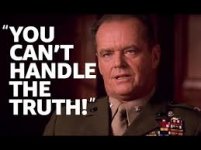Ooh It’s a Corner
Well-known member
The Battle of Rorke's Drift, also known as the Defence of Rorke's Drift, was an engagement in the Anglo-Zulu War. The successful British defence of the mission station of Rorke's Drift, under the command of Lieutenants John Chard of the Royal Engineers and Gonville Bromhead, began when a large contingent of Zulu warriors broke off from their main force during the final hour of the British defeat at the day-long Battle of Isandlwana on 22 January 1879, diverting 6 miles (9.7 km) to attack Rorke's Drift later that day and continuing into the following day.
Just over 150 British and colonial troops defended the station against attacks by 3,000 to 4,000 Zulu warriors. The massive but piecemeal attacks by the Zulu on Rorke's Drift came very close to defeating the much smaller garrison, but were consistently repelled.
Eleven Victoria Crosses were awarded to the defenders, along with a number of other decorations and honours.
Victoria Cross
•Lieutenant John Rouse Merriott Chard, 5th Field Coy, Royal Engineers
•Lieutenant Gonville Bromhead; B Coy, 24th (The 2nd Warwickshire) Regiment of Foot (2nd/24th Foot)
•Corporal William Wilson Allen; B Coy, 2nd/24th Foot
•Private Frederick Hitch; B Coy, 2nd/24th Foot
•Private Alfred Henry Hook; B Coy, 2nd/24th Foot
•Private Robert Jones; B Coy, 2nd/24th Foot
•Private William Jones; B Coy, 2nd/24th Foot
•Private John Williams; B Coy, 2nd/24th Foot
•Surgeon-Major James Henry Reynolds; Army Medical Department
•Acting Assistant Commissary James Langley Dalton; Commissariat and Transport Department
•Corporal Christian Ferdinand Schiess; 2nd/3rd Natal
The role of honour spine tinglingly read by Richard Burton at the end of the film Zulu
Rest in peace Men of Harlech
Just over 150 British and colonial troops defended the station against attacks by 3,000 to 4,000 Zulu warriors. The massive but piecemeal attacks by the Zulu on Rorke's Drift came very close to defeating the much smaller garrison, but were consistently repelled.
Eleven Victoria Crosses were awarded to the defenders, along with a number of other decorations and honours.
Victoria Cross
•Lieutenant John Rouse Merriott Chard, 5th Field Coy, Royal Engineers
•Lieutenant Gonville Bromhead; B Coy, 24th (The 2nd Warwickshire) Regiment of Foot (2nd/24th Foot)
•Corporal William Wilson Allen; B Coy, 2nd/24th Foot
•Private Frederick Hitch; B Coy, 2nd/24th Foot
•Private Alfred Henry Hook; B Coy, 2nd/24th Foot
•Private Robert Jones; B Coy, 2nd/24th Foot
•Private William Jones; B Coy, 2nd/24th Foot
•Private John Williams; B Coy, 2nd/24th Foot
•Surgeon-Major James Henry Reynolds; Army Medical Department
•Acting Assistant Commissary James Langley Dalton; Commissariat and Transport Department
•Corporal Christian Ferdinand Schiess; 2nd/3rd Natal
The role of honour spine tinglingly read by Richard Burton at the end of the film Zulu
Rest in peace Men of Harlech

